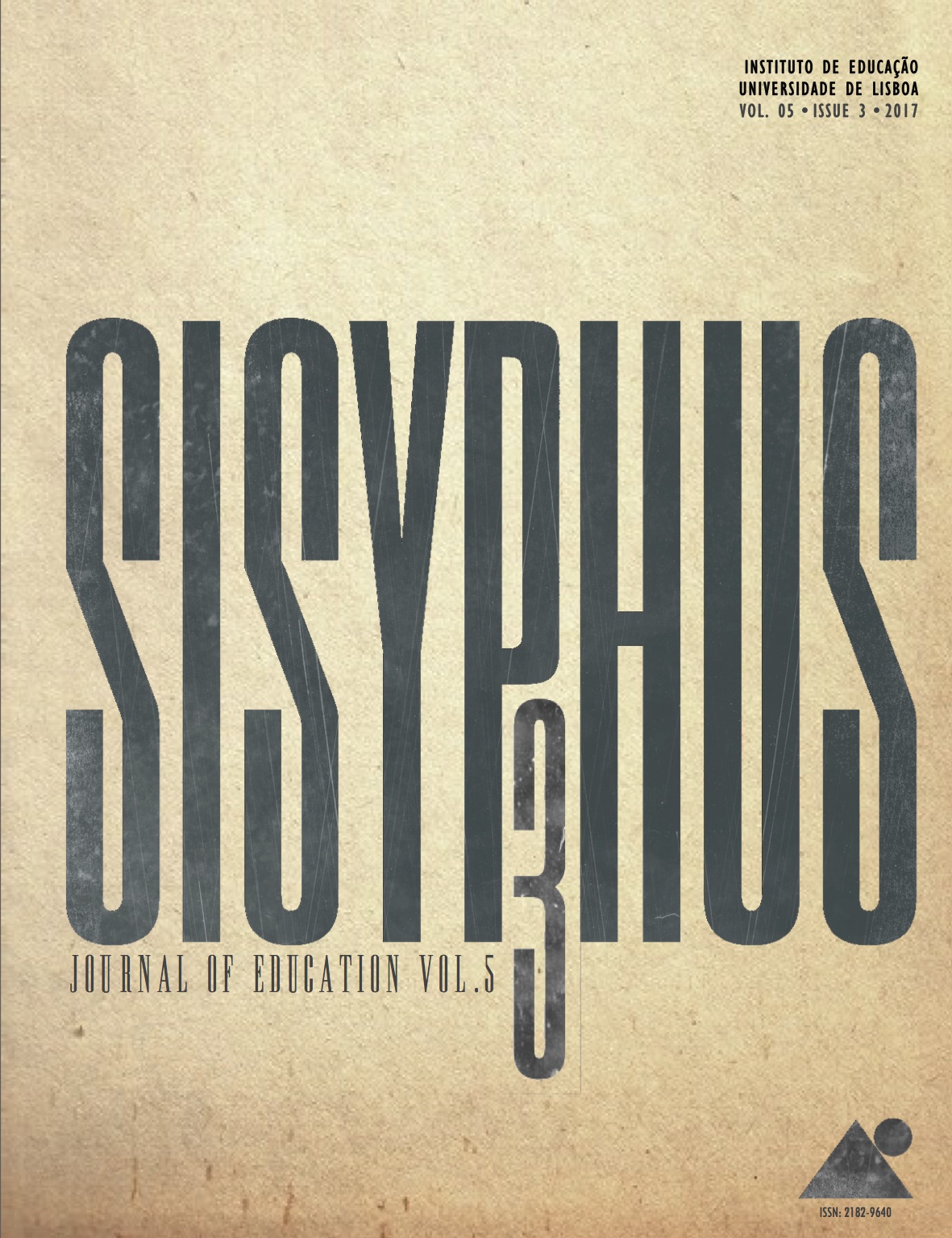Responsible Research and Innovation in Science Education: The Solution or The Emperor’s New Clothes?
DOI:
https://doi.org/10.25749/sis.13087Palavras-chave:
Responsible research and innovation (RRI), Scientific literacy, Nature of Science (NOS), Socioscientific issues (SSI), Science education / Investigação e Inovação Responsáveis, Literacia científica, Questões sociocientíficas, Educação em ciênciasResumo
Abstract
The European Commission has for the past 10 years emphasised the importance of “Responsible research and innovation” (RRI). RRI is an approach that anticipates and assesses potential implications and societal expectations with regard to research and innovation, with the aim to foster the design of inclusive and sustainable research and innovation. Despite efforts to support RRI projects, however, little attention has been given to RRI in science education and science education research over this period. This article problematises the concept RRI and its relation to some of the key concepts in science education, comparing and discussing it in relation to scientific literacy, nature of science and socioscientific issues. The meeting between scientists and students is emphasised as a key issue to address, if RRI is to be regarded as an important part of science education.
Resumo
A Comissão Europeia tem enfatizado nos últimos 10 anos a importância da Investigação e Inovação Responsáveis (IIR). A IIR é uma abordagem que antecipa e avalia as potenciais implicações e as expectativas societais no que diz respeito à investigação e inovação, com o objetivo de fomentar o desenvolvimento de uma investigação e inovação inclusiva e sustentável. No entanto, apesar dos esforços para apoiar os projetos de IIR, durante este período pouca atenção foi dada à IIR na educação em ciências e na investigação em educação em ciências. Este artigo problematiza o conceito de IIR e a sua relação com alguns dos conceitos-chave da educação em ciências, comparando-o e discutindo-o relativamente à literacia científica, à natureza da ciência e às questões sociocientíficas. O encontro entre cientistas e estudantes é enfatizada como uma questão-chave a abordar, se a IIR for considerada uma parte importante da educação em ciências.
Downloads
Downloads
Publicado
Edição
Secção
Licença
O Copyright (c) pertence à Sisyphus – Journal of Education. No entanto, encorajamos que os artigos publicados na revista sejam publicados noutros lugares, desde que seja solicitada a autorização da Sisyphus e os autores integrem a nossa citação de fonte original e um link para o nosso site.
Política de auto-arquivo
É permitido aos autores o auto-arquivo da versão final publicada dos seus artigos em repositórios institucionais, temáticos ou páginas web pessoais e institucionais.
Subscritor DORA
O Instituto de Educação da Universidade de Lisboa, editor da Sisyphus, é um dos subscritores da Declaração de São Francisco sobre Avaliação da Investigação (DORA).





